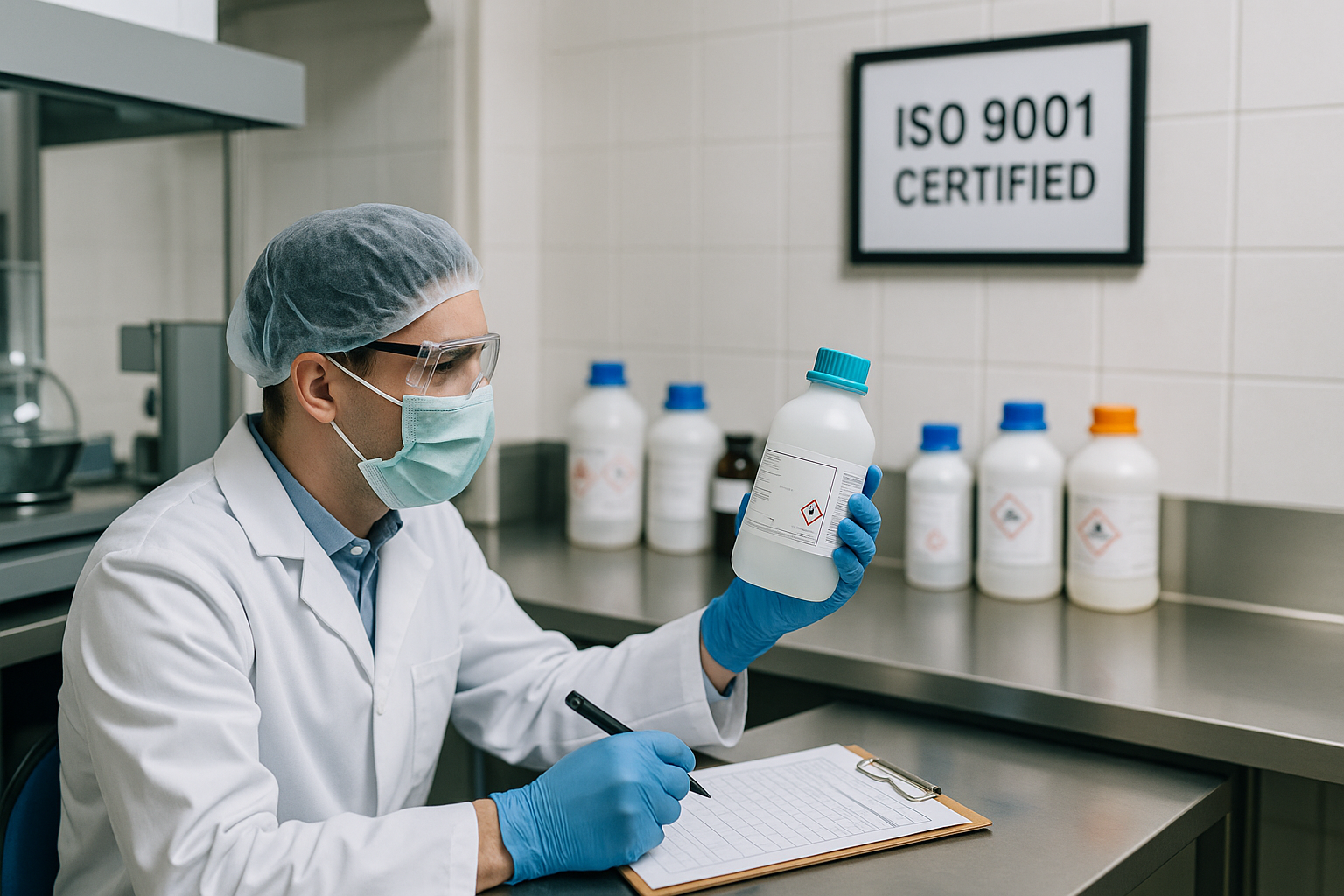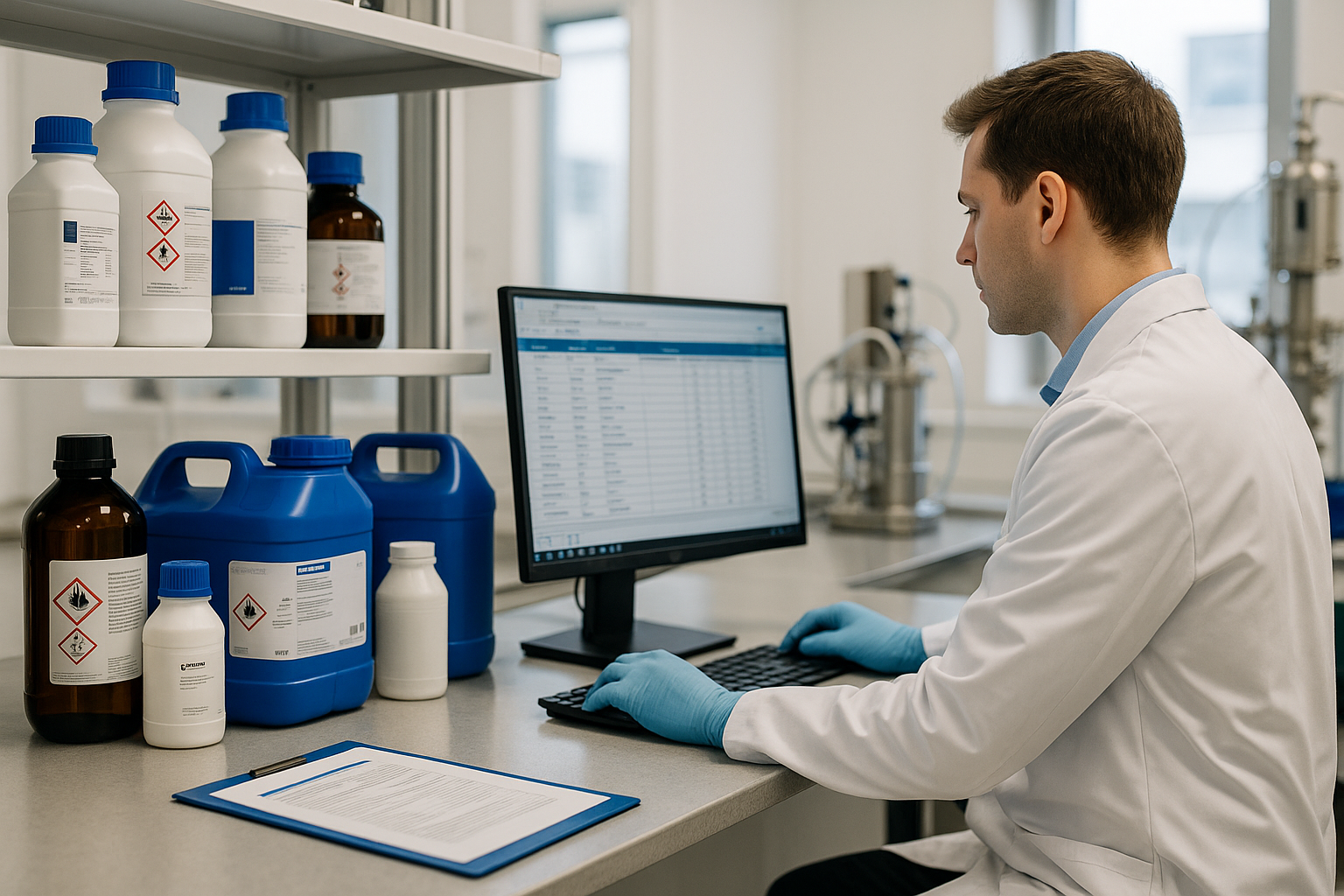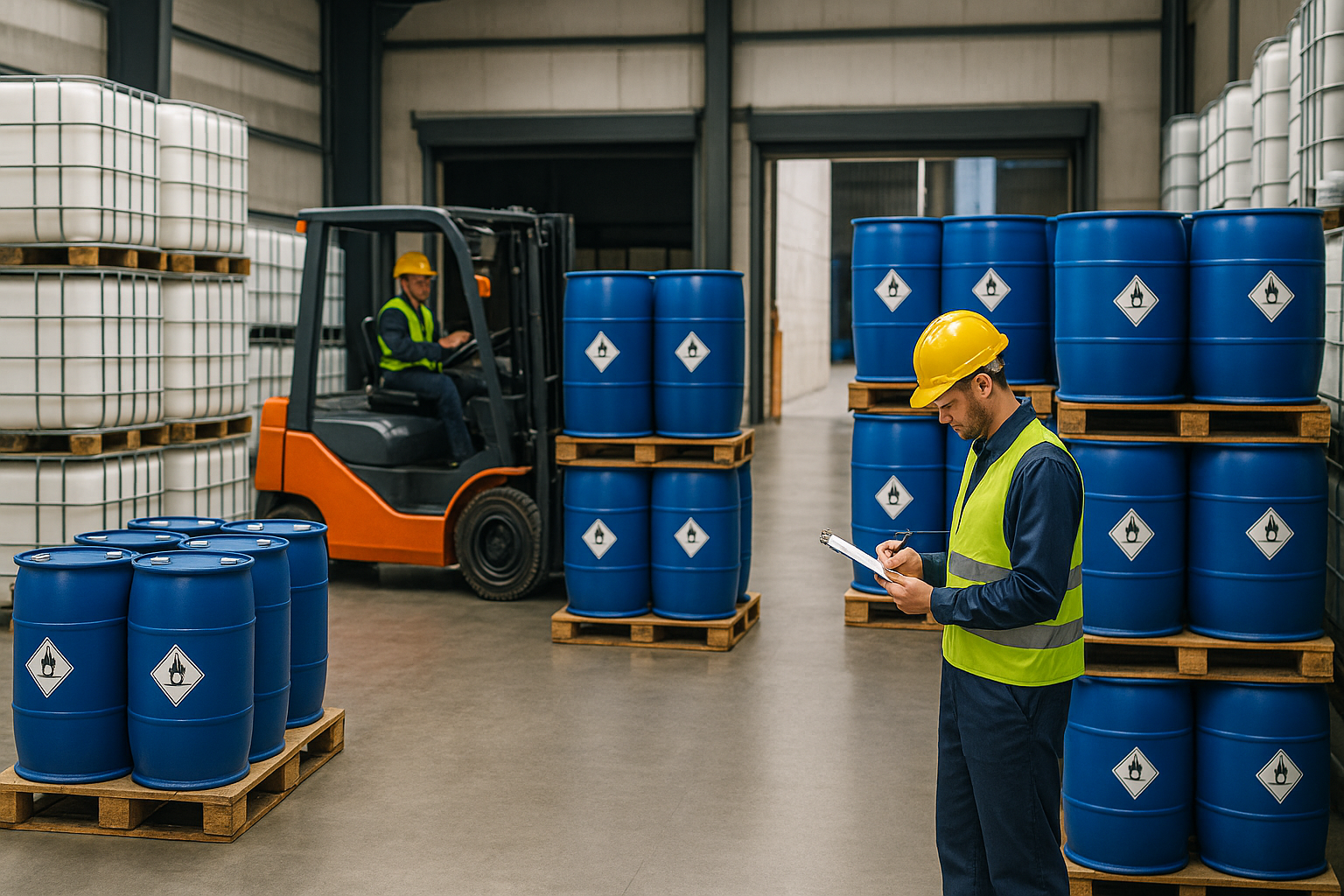Choosing a chemical manufacturer seems like another task on the procurement list. But, honestly, it’s rarely that simple. This isn’t ordering toner for the printer — it’s selecting a supply partner who can either keep your production lines moving or quietly unravel them without much warning.
The impact tends to creep in. One late delivery snowballs into production downtime. A spec change, missed in transit, turns into a batch that won’t cure or flow the way it should. And before you know it, you’re fielding complaints, rejigging orders, or fighting for a bit of slack on a tight deadline.
What makes it tougher still is that the cheapest option often comes with hidden costs — missed KPIs, extra admin, or problems that don’t show up until the product’s already been used.
That’s why chemical manufacturers aren’t just vendors. The right one, more or less, becomes part of your team. They understand what’s riding on every shipment. They keep surprises to a minimum and give you one less thing to worry about when things get hectic, which they often do.
So if the job feels weightier than the line item suggests, you’re probably right. It’s not just about sourcing additives. It’s about protecting standards, meeting compliance, and making smarter business moves — all without adding friction to the day-to-day.
1. Quality Assurance and Certifications

Low price can be tempting. But without strong quality credentials, that saving usually comes at your expense, sometimes quite literally. When a chemical batch falls short, it rarely ends with a single issue. It sets off a chain: faulty end-products, downtime, lost trust, and more procurement admin than anyone needs.
That’s why ISO 9001 certification should be non-negotiable. This quality management system means the supplier’s internal processes are reviewed, measured, and externally audited — not once, but routinely. It means there’s a system in place for checking consistency, flagging errors before they hit you, and keeping traceability rock solid.
Still, the best manufacturers don’t stop there. You should also expect to see ISO 14001 for environmental management and ISO 45001 for health and safety, especially in industries where ESG goals and HSE risks are getting more attention by the day.
ISO 14001 isn’t just lip service to the planet. It shows the supplier tracks and reduces waste, cuts emissions, and works with greener materials where possible. For example, we offset all waste to carbon neutral and run energy-efficient systems monitored by IT, with the aim of hitting net zero by 2030.
ISO 45001, meanwhile, tells you how they handle safety, not only in manufacturing, but across transport and storage too. That means incident reporting that’s fast and accurate, safety audits that actually flag action points, and people trained to handle hazardous materials without guesswork.
Combined, these accreditations tell you something a brochure won’t: whether your supplier’s process is as reliable as their pitch. And in a field where one oversight can ripple across an entire supply chain, that kind of clarity tends to be worth its weight in saved rework.
2. Experience and Expertise
Experience doesn’t just speak to time served. It hints at how often a manufacturer’s been challenged — and how well they’ve adapted.
Has this supplier worked with businesses in your sector? Have they developed chemical formulations for specific performance criteria before? That sort of specialist know-how often reveals itself in the little things: fewer questions about your spec, more insights into how to tweak it for efficiency.
A proven track record backed by long-term customer relationships or case studies is often the clearest sign you’re dealing with someone who really knows their chemistry.
3. Product Range and Customisation

Sometimes what sets a supplier apart isn’t what’s on the datasheet, but what they can help you create.
A wide product portfolio is often a sign of deep technical ability — the kind that lets them adapt and formulate based on what your process actually needs. And if they offer co-development or custom chemical formulations, that’s usually a green flag that they’ll work with you, not just for you.
Customisation might not be something you need straight away. But when that product line expands or specs change, it’s better to already have someone in your corner who can flex with you.
4. Sustainability Practices
Environmental accountability isn’t just a bonus anymore. For many industrial buyers, it’s a purchasing requirement — and the pressure’s only building.
Manufacturers using eco-friendly additives, sustainable raw materials, or even closed-loop recycling initiatives are often better prepared for changing regulations and investor expectations. And if your own ESG targets are growing stricter, their sustainability record could become a big part of your own.
So, if a supplier can show how they’re reducing waste, lowering emissions, or designing greener solutions, it’s worth asking more.
5. Supply Chain and Reliability

Even the best formulation is useless if it doesn’t arrive when you need it.
Ask about lead times, delivery guarantees, and how they handle logistics disruptions. Do they hold local stock? Can they offer just-in-time supply or buffer inventory?
It’s easy to overlook until a shipment delay halts production, or overseas sourcing hits a customs snag. Domestic suppliers with strong warehousing and dependable logistics partners might be slightly more expensive on paper, but that reliability often ends up saving more.
6. Compliance with Regulations
Choosing a manufacturer who’s not on top of chemical regulations can be a legal time bomb. And, let’s face it, REACH isn’t getting any simpler.
Make sure the supplier complies with UK and EU legislation, offers proper documentation, and keeps you in the loop on any regulatory updates. If they’re proactive about compliance, that’s one less headache for your quality and legal teams to worry about.
Failing to check this? It can lead to rejected products, legal liability, or worse — a recall you didn’t see coming.
7. Technical Support

Here’s where things really shift from ‘supplier’ to ‘partner’. Do they offer application advice? Will you be talking to a chemist or a call centre if things go sideways?
The best chemical manufacturers usually come with built-in technical support. That might be a direct line to their formulation team, R&D input on new projects, or someone who’ll visit your site if things get tricky.
That sort of support isn’t just helpful. It’s a competitive edge, especially in complex manufacturing where small changes make a big difference.
8. Cost and Value
Price matters. Of course it does. But if the focus is entirely on pence-per-kilo, it’s easy to miss the bigger picture.
There’s the cost of downtime if a supplier lets you down. The price of rework if the batch doesn’t perform. Or the admin load from managing multiple suppliers instead of one reliable one.
Instead, consider the total cost of ownership. That includes logistics, waste, support, and peace of mind. Often, the supplier that looks a little pricier up front ends up being the smarter long-term choice.
The right chemical manufacturer won’t just fill an order. They’ll help keep your business sharp, compliant, and resilient. And for most procurement teams, that kind of partnership is worth a whole lot more than a few pounds saved on a single batch.
